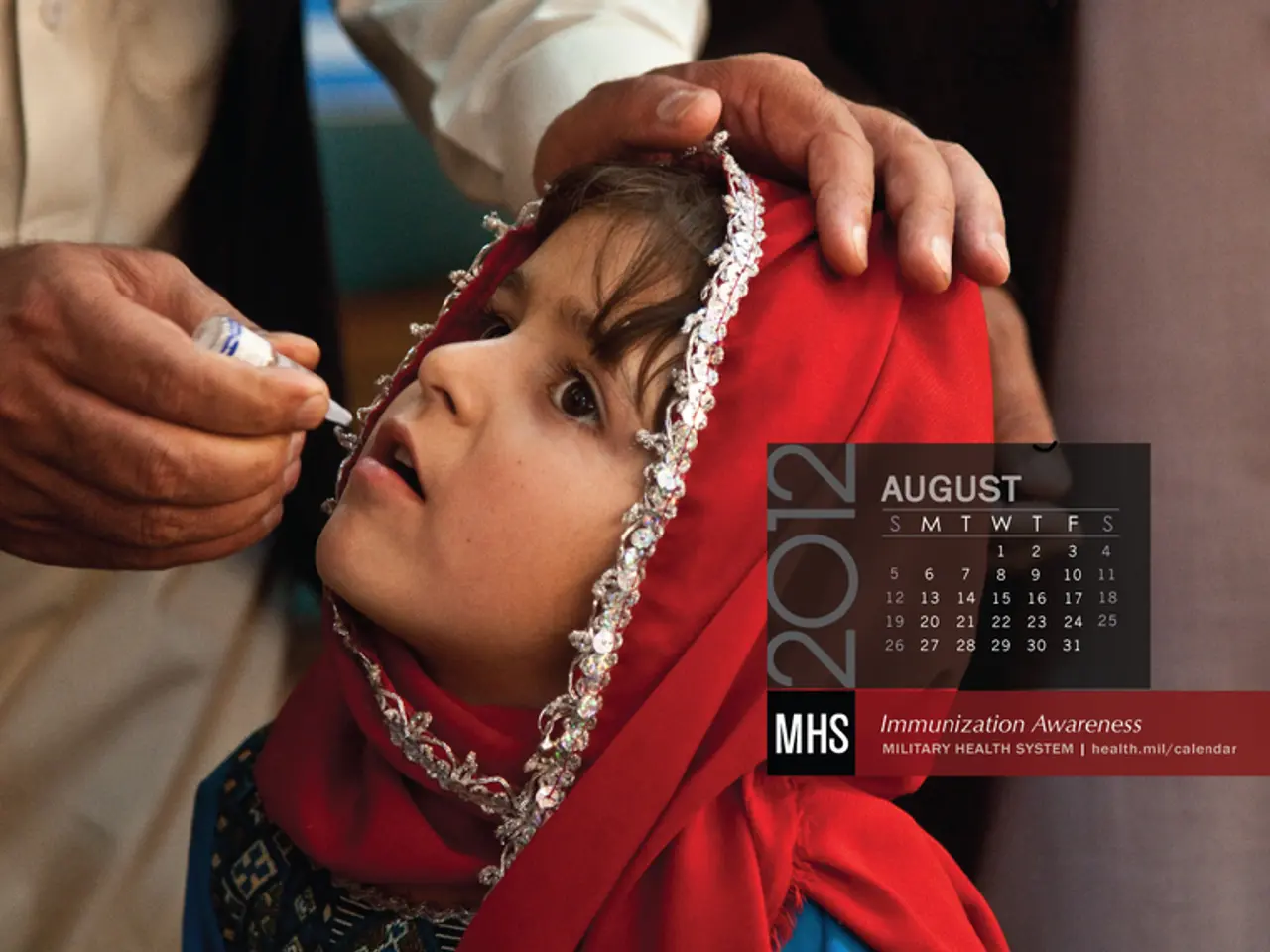Global health alert: WHO declares monkeypox spread not to be classified as a global emergency
Monkeypox Declared a Global Health Emergency: What You Need to Know
The World Health Organization (WHO) has declared monkeypox a public health emergency of international concern, signifying a coordinated international response is needed to address the ongoing outbreak. As of July 23, 2022, the virus has spread to at least 75 countries, with over 16,000 cases reported worldwide.
Although monkeypox does not spread as easily as COVID-19, the elevated risk is a cause for concern as the virus continues to spread outside of Africa. The WHO's decision comes after a meeting of the International Health Regulations Emergency Committee (EC), which was unable to reach a consensus about the severity of the outbreak.
Vaccination and Prevention
In high-risk communities, prevention centres on timely vaccination with JYNNEOS, a replication-deficient vaccine with a better safety profile, even for immunocompromised individuals and pregnant patients. The vaccine is recommended for those with known exposure to monkeypox, individuals with significant risk factors, and healthcare workers exposed to infectious body fluids. Vaccination within 4 days of exposure is ideal to prevent infection, while vaccination up to 14 days may reduce symptom severity. Boosters beyond the two-dose series are not currently recommended.
In the absence of FDA-approved treatments specifically for monkeypox, antivirals developed for smallpox preparedness may be beneficial. Tecovirimat (TPOXX) is the main antiviral used for severe or complicated cases. Vaccinia Immune Globulin Intravenous (VIGIV) can be used in patients who experience serious adverse effects from the live vaccinia vaccine.
Transmission and Demographics
Monkeypox can be transmitted through person-to-person contact, not just zoonotically. The virus has infected more than 3,500 individuals in 59 countries where monkeypox is not normally prevalent. Most reported cases are among men who have sex with men, although the proportion of women affected in Nigeria is higher than elsewhere.
Monkeypox cases occurring outside of Africa in countries where the virus is not normally present were first reported in May. The New York City Health Department began recommending the two-dose Jynneos vaccine to high-risk groups on June 23. Despite the rise in monkeypox cases, Dr. Monica Gandhi, an infectious diseases specialist, stated that the general public should not be worried, as the virus is likely not spreading very efficiently.
So far, only one individual outside of Africa (excluding Nigeria) has died of the monkeypox disease. Global health data indicates that person-to-person transmission of monkeypox is ongoing and likely underestimated. The U.K. Health Security Agency began recommending the smallpox vaccine Imvanex to high-risk males to control the monkeypox outbreak on June 23.
In conclusion, a coordinated international response is essential to manage the ongoing monkeypox outbreak. Vaccination with JYNNEOS and antiviral treatments like tecovirimat are available for high-risk communities, with supportive care remaining important for managing symptoms. It is crucial to continue monitoring the spread of the virus and adjust public health measures accordingly.
- Despite the declaration of monkeypox as a public health emergency, it does not spread as easily as COVID-19, but the rising number of cases around the world has raised concerns.
- In high-risk communities, prevention of monkeypox centers on timely vaccination with JYNNEOS, a vaccine that is also safe for immunocompromised individuals and pregnant patients.
- The WHO's decision comes amidst the increasing number of cases in countries where monkeypox is not normally present, a significant proportion of which are among men who have sex with men.
- The absence of FDA-approved treatments for monkeypox means that antivirals developed for smallpox preparedness, such as Tecovirimat, may be beneficial in severe or complicated cases.
- It's important to note that the general public should not be overly concerned, as Monica Gandhi, an infectious diseases specialist, stated that the virus is likely not spreading very efficiently.
- In countries outside of Africa where the virus is not typically found, the politics surrounding the distribution of vaccines and antiviral treatments will play a crucial role in managing the ongoing monkeypox outbreak.




